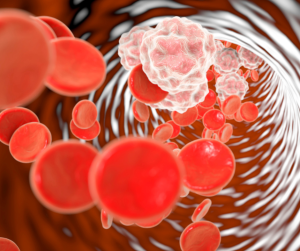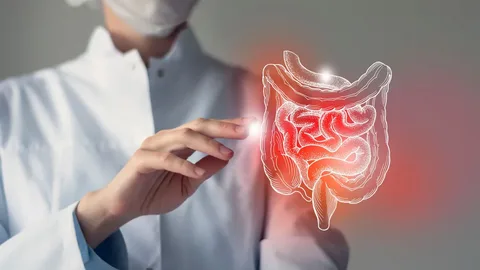Introduction: Beyond its conventional association as a digestive condition, ulcerative colitis (UC) weaves an intricate tapestry that extends its influence to heart health. This extensive examination aims to unravel the multifaceted relationship between UC and heart disease, delving into the realms of inflammation, shared risks, and the profound impact on the gut microbiome. The Role
Introduction:
Beyond its conventional association as a digestive condition, ulcerative colitis (UC) weaves an intricate tapestry that extends its influence to heart health. This extensive examination aims to unravel the multifaceted relationship between UC and heart disease, delving into the realms of inflammation, shared risks, and the profound impact on the gut microbiome.
The Role of Inflammation:
Chronic autoimmune diseases, including UC, bring about systemic inflammation. Recent research, such as the 2023 study on inflammatory bowel disease (IBD) and heart disease, illuminates the link between these conditions. The study underscores the role of inflammation in atherogenesis, detailing how prolonged elevated levels can significantly heighten the risk of coronary heart disease.

Image by: yandex.com
Shared Risk Factors:
- Smoking: A nuanced risk factor, showing a dual effect by increasing the risk of Crohn’s disease but exhibiting a protective effect against UC. However, it’s essential to note that smoking still amplifies the risk of heart disease.
- Diabetes: UC not only raises the risk of diabetes but subsequently contributes to an increased risk of heart disease.
- Diet: The intricate dance of diet plays a crucial role, with the consumption of high amounts of saturated fats escalating risks for both UC and atherosclerotic cardiovascular diseases.
- Obesity: A common denominator, linking individuals with UC to an increased risk of heart disease, with potential variations in impact between Crohn’s disease and UC.
- Cholesterol Levels: People living with IBD often exhibit high triglycerides, high LDL (“bad” cholesterol), and low HDL (“good” cholesterol), collectively contributing to an elevated risk of heart disease.
A holistic approach is imperative, recognizing that shared risk factors necessitate collaborative care from both gastroenterologists and cardiologists for optimal health outcomes.

Image by: yandex.com
The Gut Microbiome’s Influence:
The gut microbiome, an expansive ecosystem teeming with millions of microorganisms residing in the intestines, emerges as a pivotal player in the narrative of UC and heart-related conditions. Changes in this intricate microbiome can release microbial products, influencing and contributing to the formation of arterial plaques. Researchers advocate for treatments addressing imbalances within this complex system, recognizing its significance for both UC and heart disease.
How UC Treatment Affects the Heart:
- Medications: The pharmacological arsenal for UC often includes immunomodulators, biologics, and janus kinase (JAK) inhibitors. These drugs endeavor to suppress inflammation, potentially reducing the frequency of flares and alleviating UC symptoms.
- Impact on Heart Disease Risk: While the landscape of studies exploring the direct impact is limited, experts posit that proper UC treatment may herald a decrease in the risk of heart-related complications.

Image by: yandex.com
Tips for Managing UC and Promoting Heart Health:
- Multidisciplinary Care: Advocate for collaborative efforts involving gastroenterologists and cardiologists to formulate a well-rounded treatment approach.
- Regular Screenings: Periodic screenings for heart disease are crucial to detect and address potential issues before they escalate.
- Lifestyle Modifications: Proactive steps, including regular exercise and stress management, are integral components of reducing cardiovascular risk.
- UC as a Risk Factor: When considering therapeutic interventions like statin therapy, acknowledging UC as a relevant factor in the decision-making process is paramount, given its influence on heart health.
Embracing a Mediterranean Lifestyle:
Venture into the realm of dietary considerations, exploring the benefits of the Mediterranean diet for individuals grappling with UC and aiming to safeguard heart health. Insights gleaned from a 2022 study underscore positive influences on the gut microbiome and cardiovascular outcomes, advocating for a holistic approach to wellness.

Image by: yandex.com
Conclusion:
Living with UC inherently elevates the risk of heart disease, forming a complex interplay that demands nuanced understanding. This exhaustive exploration not only sheds a comprehensive light on the intricate relationship but empowers individuals to adopt a proactive and comprehensive approach to manage UC and safeguard heart health. Understanding the link is not just knowledge; it’s the first crucial step toward a healthier, more informed life.

















Leave a Comment
Your email address will not be published. Required fields are marked with *